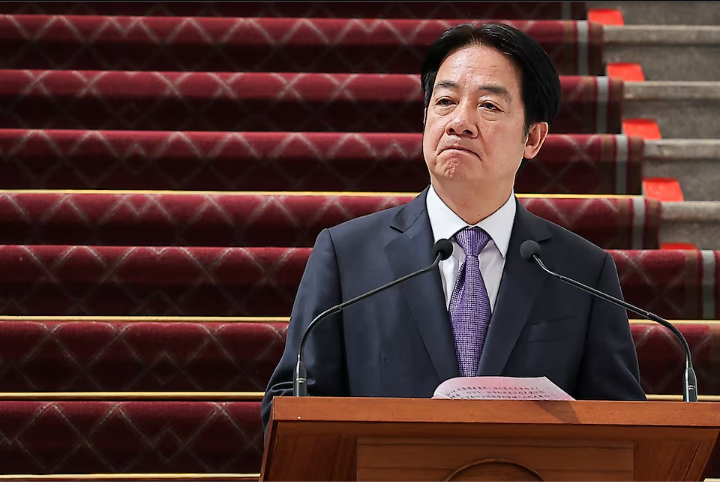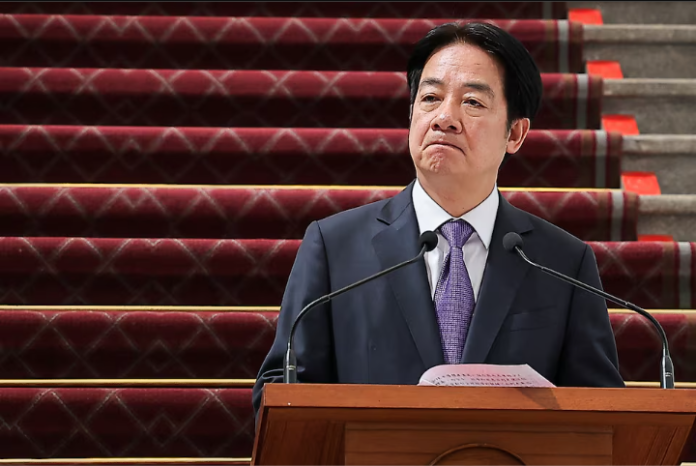Taiwanese President Lai Ching-te has reaffirmed his commitment to strengthening Taiwan’s semiconductor relationship with the United States. In response to former President Donald Trump’s recent criticism, Lai announced plans for increased investment in U.S. chip manufacturing and defense spending. The move aims to ease concerns over Taiwan’s role in the global semiconductor industry while reinforcing its strategic alliance with the U.S.
Taiwan Addresses Trump’s Concerns on Chip Industry
On Thursday, Trump reiterated his stance that Taiwan had taken away semiconductor manufacturing from the U.S., vowing to bring the industry back home. In response, President Lai held a National Security Council meeting and reassured both nations that Taiwan is willing to collaborate on solutions.
“We understand President Trump’s concerns,” Lai stated. “The semiconductor industry operates as a global ecosystem where international collaboration is crucial. Taiwan will engage with its chipmakers to develop strategies that align with U.S. interests.”
Taiwan is home to TSMC, the world’s largest contract chipmaker and a key supplier to tech giants like Apple and Nvidia. TSMC has already committed $65 billion to new factories in Arizona, a project initiated during Trump’s first administration. However, the company’s Taipei-listed shares fell by 2.8% following Trump’s remarks, reflecting market uncertainty.
A Call for a Democratic AI Chip Supply Chain
Beyond semiconductor investments, President Lai emphasized the need for a “democratic supply chain” for advanced AI chips. He proposed that democratic nations, including the U.S., work together to establish a secure and stable semiconductor supply network.
“Taiwan’s technological leadership in semiconductors comes with a responsibility to contribute to global prosperity,” Lai stated. His remarks signal Taiwan’s intent to not only strengthen economic ties with the U.S. but also align with democratic nations to counter China’s growing influence in the tech sector.
Increased Defense Spending to Secure U.S. Support
Taiwan’s relationship with the U.S. extends beyond semiconductors. The self-governed island faces increasing military threats from China, which views Taiwan as part of its territory. Trump has previously criticized Taiwan, and other U.S. allies, for not spending enough on defense.
In response, Lai announced plans to increase Taiwan’s defense budget from 2.5% to 3% of its GDP. He stressed that Taiwan must demonstrate its commitment to self-defense, particularly as opposition parties in parliament debate budget cuts.

“With growing geopolitical tensions, Taiwan must showcase its determination to protect itself,” Lai said, acknowledging concerns from international allies.
Taiwan’s Trade Surplus with the U.S.
Despite strong political ties, Taiwan’s growing trade surplus with the U.S. has also drawn scrutiny. In 2024, Taiwan’s exports to the U.S. surged by 83%, reaching a record $111.4 billion. The boom was largely driven by high-tech products, particularly semiconductors.
While the U.S. values Taiwan’s role in the supply chain, Trump’s stance on reshoring chip production presents challenges for Taiwan’s economy. Lai’s latest commitments to U.S. investments and partnerships are an effort to balance these interests while maintaining Taiwan’s economic stability.
Taiwan’s proactive approach—fostering semiconductor collaboration, increasing defense spending, and addressing trade concerns—aims to solidify its strategic partnership with the U.S. However, with Trump pushing for greater domestic chip production, Taiwan must navigate a complex geopolitical landscape to maintain its standing as a global semiconductor leader.



